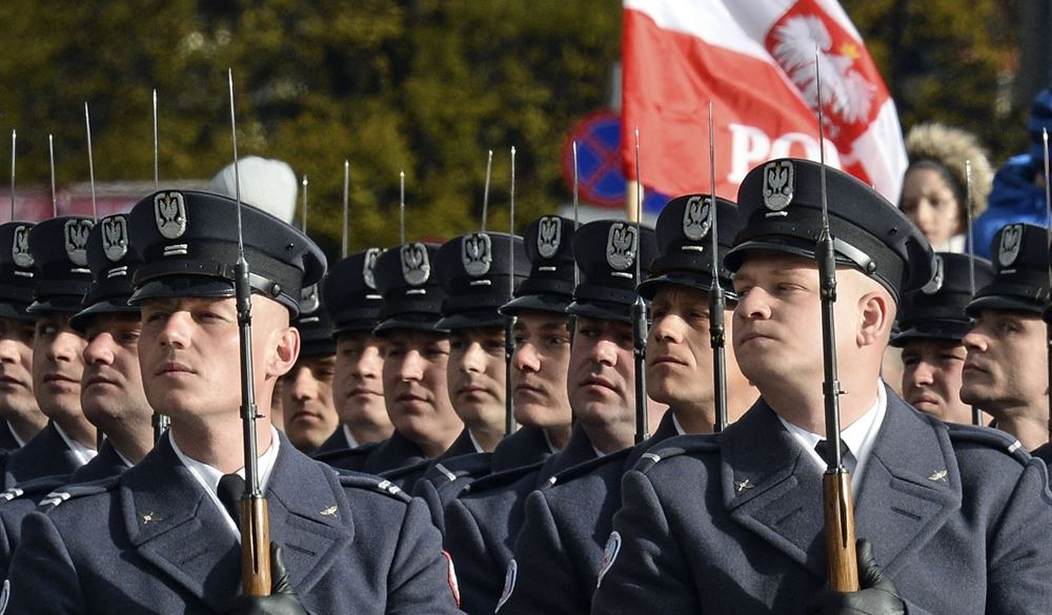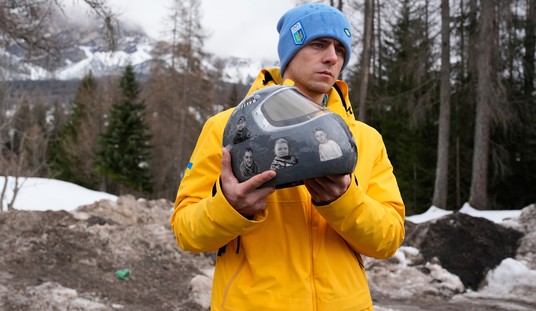When researching my article on Poland's response to their rail attacks, a question popped into my head: In world history, which country—or people—have been walked over more than a welcome mat?
Related: Poland Promises Payback After Terror Strikes Its Rail Line
There are regions of Earth that never have a moment of peace, where generations grow up with foreign soldiers on their roads, tyrants in palaces, and a landscape scarred by conflict.
I think younger Americans forget how lucky we are; our geography keeps us safe because the oceans shield us from powers that would happily seize land to plant their flags.
Other nations aren't so lucky; their lands are shaped by geography, empire, and fate. Nations such as Poland, Afghanistan, Rwanda, Korea, Ukraine, Armenia, and even Russia carry long memories of cruelty and conquest, teaching a hard lesson of resilience because there's no other option.
Humans everywhere draw breath the same way, but some nations never get the chance to exhale.
Poland’s Ordeal Through the Centuries
Sitting on a plain stretching from Germany to Russia, Poland has no mountain ranges or natural barriers that offer any protection. Foreign armies roll across the plain the same way a windstorm sweeps an open field, a grim fact Poland learned early.
Prussia, Austria, and Russia took turns carving the country apart in the late eighteenth century, wiping the Polish state from the map, yet its culture survived only by sheer determination.
During World War I, a foreign power returned under German occupation. There was a brief window of independence following the Great War, only to be shattered when Hitler and Stalin signed the Molotov-Ribbentrop Pact. Poland once again was torn apart by two totalitarian machines. Nazi Germany built death camps on occupied Polish soil, and Stalin's forces committed atrocities such as the massacre at Katyn. At the end of World War II, Soviet rule locked Poland inside a new prison.
Related: From the Gates of Auschwitz: Why Anger Is the Only Honest Response
It was the moral strength of men such as Saint Pope John Paul II and workers of the Solidarity movement that began lifting the chains.
In 1989, a land punished for centuries finally earned its freedom, treasuring it in a way most countries can't imagine. Poland is a key member of NATO because its memory runs deep.
Rwanda’s Descent and Climb Toward Stability
Rwanda is slightly different from other countries on this list. It doesn't carry a thousand years of invasion history; instead, it carries the weight of one of the twentieth century's most horrifying internal catastrophes.
Ethnic identity cards, shaped by colonial powers, hardened lines between groups who once lived with greater flexibility.
Belgian rule, which forced heavy social engineering and pressure, brewed resentment.
Then came 1994.
The genocide erupted with lightning speed; neighbors turned on neighbors, killing nearly a million people. There wasn't a foreign army that marched across Rwanda with banners flying; the cruelty came from within.
This internal strife makes the burden different, yet equally heavy. The nation rebuilt itself with discipline that surprised many Western observers. Sources such as Human Rights Watch and UN reports on Rwanda show how the region still navigates trauma.
A country smaller than the state of Wisconsin endured a tragedy that few nations could survive.
Afghanistan and the Cost of Geography
Standing at the crossroads of empires, Afghanistan possesses passes that control access between Central Asia and South Asia.
For thousands of years, armies have marched through those passes: Persians, Greeks, Mongols, Mughals, British regiments, Soviet divisions, and Islamist militias all battled for dominance. After 9/11, the United States fought there when President George W. Bush authorized strikes on al-Qaeda safe havens. Later, President Donald Trump pushed for a controlled withdrawal, seeking leverage and guarantees. Unfortunately, President Joe Biden completely messed up the bed with his botched withdrawal.
Afghan families live with war as background noise: Empires believe they can shape Afghan society, but it's a land that refuses to bend. It's a stubborn resilience that mirrors Poland in some ways, but the source of pressure is the difference.
Russia’s Dual Identity as Victim and Aggressor
Carrying one of the strangest historical contradictions, Russia has endured brutal invasions such as the Mongol conquest, the Napoleonic march on Moscow, and the German assault during World War II.
The country suffers from vast frontiers that are nearly impossible to defend, while winter becomes the only reliable ally.
Yet Russia also mastered conquest; the Russian Empire swallowed land from Poland to the Pacific, Soviet rule expanding the pattern. Russia acts as both victim and predator, shaped by insecurity and ambition, a dual nature that still produces tension today, including the recent attacks on Polish rail infrastructure.
Unfortunately, one truth stands out: Nations dominated by foreign powers often repeat the pattern of domination when they gain control of their own.
Trauma begets aggression unless humility intervenes.
Korea and Centuries Under the Heel
Korea has been caught between China, Mongolia, and Japan. China exerted its influence for centuries; Mongol armies invaded multiple times during the thirteenth century, demanding tribute, and Japan invaded in the sixteenth century under Toyotomi Hideyoshi. More recently, Japan returned with far more cruelty in 1910, when it formally annexed the Korean Peninsula, bringing daily realities of forced labor, cultural suppression, and brutality.
Korean families still pass down memories of the occupation. North Korea responded by forming a tyranny under the Kim family: South Korea responded by choosing freedom and strength.
History shapes nations in unpredictable ways.
Armenia and a Long Memory Of Empires
Armenia's history contains a potluck of Persian kings, Byzantine generals, Ottoman soldiers, and Soviet commissars, and its culture has survived empire after empire because families have guarded their faith and identity.
Then there's the Armenian Genocide under Ottoman Rule — over one million Armenians perished, with survivors scattered across the world, building a global diaspora that preserves history with quiet determination.
There are still pressures facing Armenia from neighbors, particularly Azerbaijan. A long arc of suffering shaped a national identity built on perseverance.
Ukraine and Suffering Between Giants
Sitting between powerful neighbors for centuries, Russians, Lithuanians, Cossacks, and Tatars all fought for control of the plains of modern Ukraine.
Stalin's engineered famine in the 1930s killed millions; Germany invaded in 1941; Soviet domination returned after the war.
Ukraine's modern struggle against Russian aggression follows a long pattern, where a country placed between large powers always pays a price. Geography becomes destiny when tyrants sit on nearby thrones.
Final Thoughts
Nations with exposed borders hardly ever have a chance to enjoy restful centuries; empires play on weakness, tyrants follow chaos. Geography rewards some countries, while burdening others.
People who inherit unlucky ground can't rely on oceans, deserts, or mountains to guard them. Instead, they rely on courage, unity, and memory, a lesson Americans need to learn from them.
We enjoy a shield many nations never earned, yet there's a responsibility to carry: defend freedom where it survives only by threadbare resolve.
History remembers which nations stood firm against tyranny, a role the United States once again holds under President Trump.
History always favors strength over hesitation.










